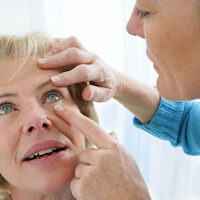6 common mistakes new parents should avoid

Becoming a parent for the first time inspires awe and anxiety in equal measure. Even as one is excited about the adventure, worrying about caring for a baby is understandable. In an attempt to be on top of things, many first-time parents may set unrealistic expectations. These can include comparisons with other families, disregarding their needs, and more. To make one’s parenting journey more enjoyable, here are 6 common mistakes that new parents should avoid.
Comparing growth milestones
Constant comparison and the envy it breeds can be a challenge in the lives of most first-time parents. New parents may frequently feel the need to compare themselves and their children with other new parents to see what they are doing right, what they are doing wrong, and how well or badly they are raising their children. First-time parents may discuss baby milestones, constantly look out for possible developmental problems, compare sleep and feeding schedules, and many other routine behaviors. The danger of such constant comparison is that one may never feel satisfied with oneself and require external validation for every action and decision.
It is crucial to note that each baby is different, and thus, they will develop different skills at different speeds. Incessant comparison will only lead to negative self-esteem and doubts.
Neglecting oral hygiene
Most people tend to take the oral hygiene of a child for granted. While parents may feel that there is no need to stress about their infant’s oral hygiene, doing so can result in the child having severe health issues in their teenage or adult years or in the immediate future as well. The bacteria and microbes in an infant’s mouth can cause diseases that the sensitive immunity of a baby will struggle to handle.
To avoid any adverse scenario, new parents must gently wipe their baby’s gums using a soft washcloth from time to time. One must do this after every meal an infant has. After a baby’s teeth start emerging in their mouth, parents must avoid giving them milk at bedtime as that causes baby bottle tooth decay. When their teeth first erupt, babies learn how to smile, chew, and speak, and tooth decay can affect all those functions. Hence, oral hygiene needs to be a top priority for first-time parents across the globe.
Stressing over breastfeeding
Breastfeeding is a complex biological and emotional aspect of a mother and child’s life that many people may have misconceptions about. In some instances, breastfeeding is considered a taboo and not discussed enough in detail. Some mothers are unable to breastfeed immediately, some may feel uncomfortable breastfeeding, and others may grow weary of it after breastfeeding their infant a few times. These are all normal scenarios and new parents should approach any of these circumstances calmly.
If a woman cannot or does not want to breastfeed, then one can explore the option of bottled milk for the infant. It is recommended to get advice from an experienced pediatrician or general physician about the same before going ahead and giving a baby bottled milk.
Trusting all opinions
New parents are often bombarded with opinions and information about getting parenting “right” from immediate family members, friends, distant relatives, acquaintances, work colleagues, and, in some cases, even the employees at their corner grocery store. One must remember that while all these people mean well, not all of their opinions may be relevant, useful, or even accurate so that parents can follow them to the T. One must also note that while there is plenty of information available on the internet regarding parenting, not every situation is applicable to each family, and suggestions found online may do more harm than good.
If, as a new parent, one is unsure about a course of action, it is advisable to check with trained healthcare specialists for recommendations and opinions.
Ignoring fevers
Parents must keep checking the forehead of their babies from time to time to gauge their body temperature. Fevers are usually a sign of the body fighting any kind of microbial invasion or disease entering the baby’s body. Therefore, if the temperature does not normalize within a specific amount of time, then parents must take their baby to the nearest healthcare facility for a quick check-up. Doing so is not a panic-stricken, paranoid decision but one that will ensure that any potential health issue in a child is taken care of immediately.
Putting too much pressure on oneself
As is the case with everything else, there is no perfection possible in parenting. No parent in the world is a flawless mom or dad. However, most new parents stress endlessly about anything and everything and, by doing so, fail to enjoy the present and cherish the process. People learn how to get things right by making mistakes, learning from them, and adapting as time goes on. So, one must try their best to manage any unrealistic expectations, from oneself or one’s partner, even when things go wrong.





